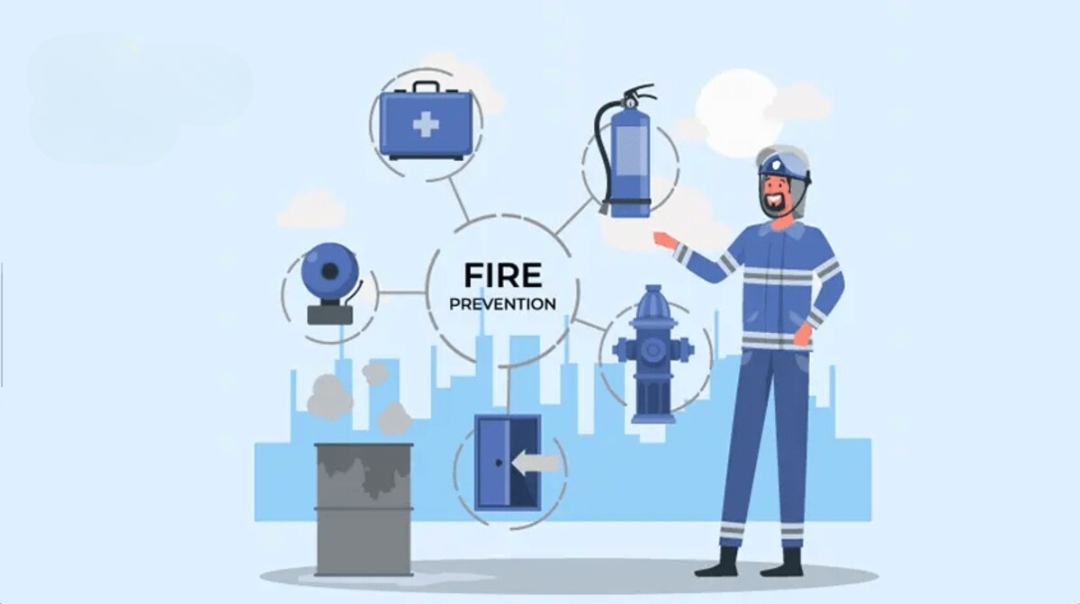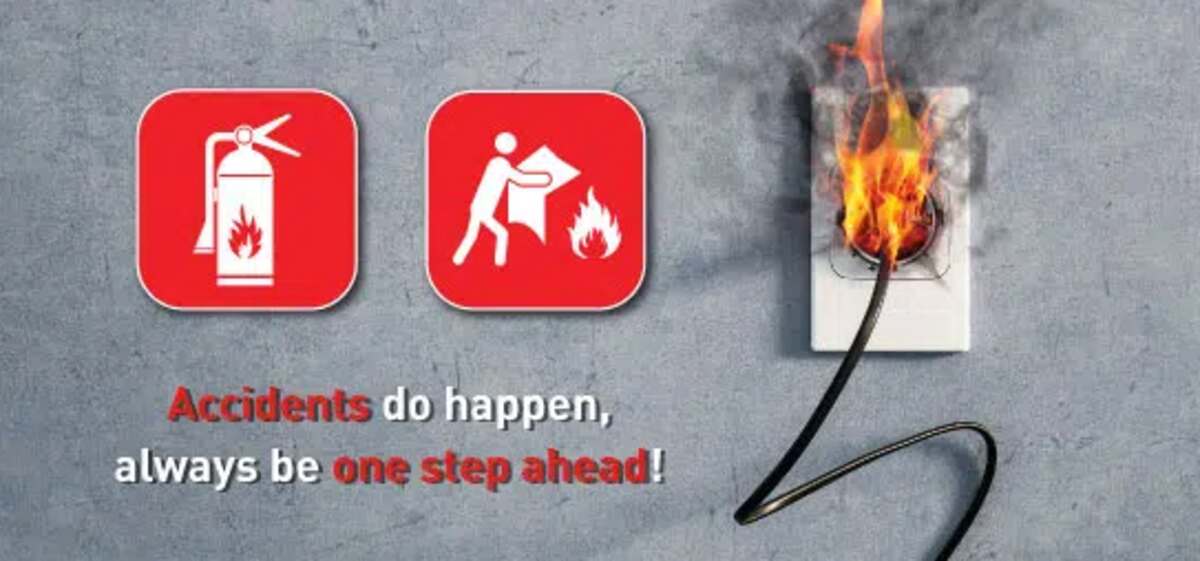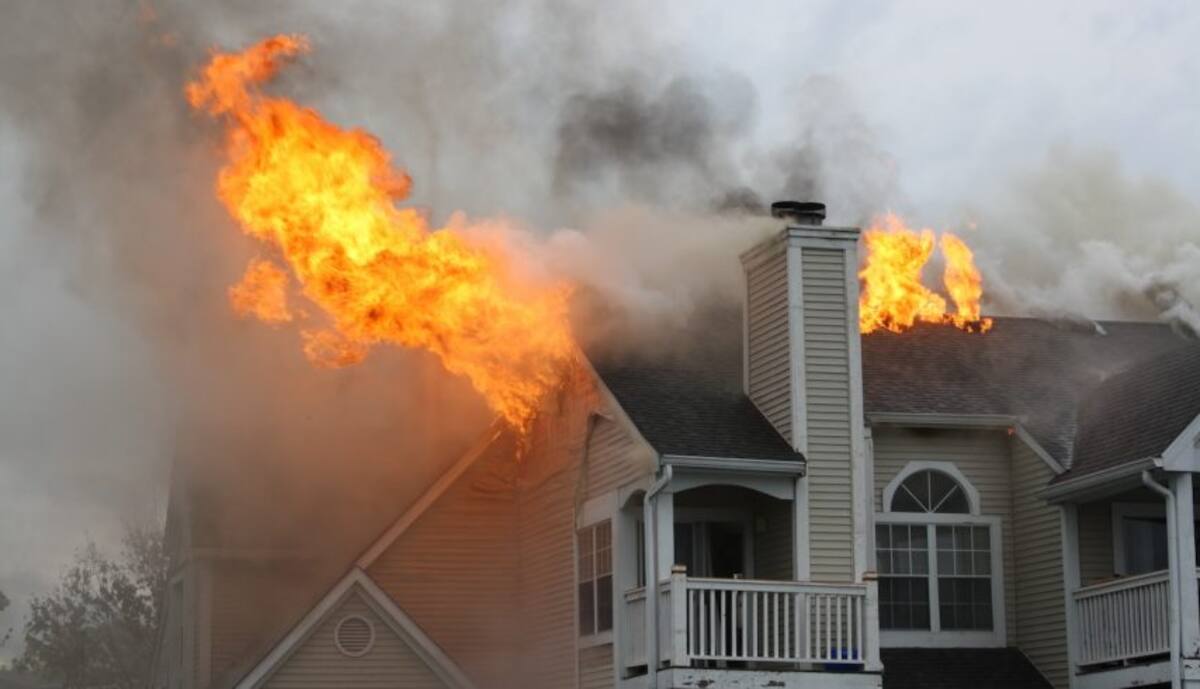Does Renters Insurance Cover Fire?
A small fire in the kitchen can quickly spread and burn your furniture, appliances, and other possessions. It would be too expensive for apartment residents to replace them. This raises a very big question: Is fire covered under renters insurance?
Fires are a leading cause of property loss, with the National Fire Protection Association estimating more than 350,000 home fires annually throughout the U.S., at a cost of billions. Renters insurance offers tenants an essential financial safety net in the form of protection for personal belongings, compensation for temporary residence, and protection against liability exposure. This guide walks through the way renters insurance protects against loss due to fire, policy details, and practical step-by-step instructions for continued protection. As a student, professional, or long-term renter, being aware that tenant insurance is the path to financial security is essential.
Learning About Renters Insurance and Fire Protection
What Is Renters Insurance?
Renters insurance is coverage for renters that covers personal property, liability, and additional living expenses. It is separate from landlord insurance, which insures the building, in that renters insurance insures what you own and your personal exposures. For example, if your apartment building catches fire and is destroyed, your landlord’s policy will not pay you for your television and clothes—but renters insurance will.
This low-cost protection, which would otherwise run $12–$15 a month, insures tenants in apartment, residential, or dormitory living. It’s a small cost to pay for coverage in case of surprise disasters like fire.
Does Renters Insurance Cover Fire?
Yes, renters insurance typically does cover fire damage as an ordinary “covered peril” on the majority of policies. If a fire burns or damages your personal items—like furniture, electronics, or clothes—your policy can help you replace them. Coverage extends to consequential damages, like smoke discoloration of your drapes or water damage from hoses employed by firefighters.
According to the Insurance Information Institute (III), fire and lightning losses accounted for 23% of homeowners’ insurance losses in 2023, and renters insurance is on the same lines. Insurance policies by companies like State Farm, Lemonade, or Allstate cover fire as a part of the policy, offering extensive protection to renters.
Types of Fire Damage Insured
Renters insurance covers various fire-related incidents, including:
-
Accidental fires: These are those such as kitchen fires from cooking accidents or electrical fires from defective appliances.
-
Wildfires: Most policies provide coverage for wildfire damage, particularly in high-risk locations such as California, although you should check with your insurer.
-
Smoke damage: Odors, soot, or residue on your property are generally covered since smoke can render your contents inoperable.
-
Firefighting water damage: Firefighting water employed to extinguish a fire might destroy electronics or furniture, and this is typically covered.
Always check your policy so that these coverages are included, because wording varies with provider.
Most Critical Aspects of Renters Insurance for Fire Protection

Personal Property Coverage
Personal property coverage is the most critical component of renters insurance. If your belongings are damaged by a fire, this coverage will pay their replacement cost (new item price) or actual cash value (replacement cost minus depreciation). For instance, if a fire burns your $1,000 computer, your policy can pay its complete replacement, depending on your policy.
Policies also have a limit, usually between $10,000 and $100,000. To get enough to cover your property, calculate the worth of your property. Renters undervalue their property, a 2024 ValuePenguin survey found, with a mean of $20,000–$30,000. Having a record of your property prevents underinsurance.
Loss of Use Coverage
If your rental is made uninhabitable as a result of a fire, loss of use coverage (also known as additional living expenses) pays for temporary residence, e.g., hotel or short-term rental. It pays for other associated expenses, including:
-
Meals if you can’t cook.
-
Washroom facilities.
-
Pet boarding if your temporary accommodation doesn’t allow pets.
For example, if a fire requires you to be moved for two weeks, your policy can cover up to $1,500 for the cost of hotels and food, based on your policy limit (typically 20–30% of your personal property policy).
Liability Coverage
Liability insurance protects you if you accidentally cause a fire that burns down the landlord’s building or buildings in other adjacent units. If a candle left unattended burns, for instance, your coverage may cover damage to the buildings or neighbor’s burned contents. It also covers attorney fees if someone sues you for fire damage or injury.
A standard policy will include $100,000 in liability coverage, but you can purchase more for additional protection. This is particularly helpful in multi-unit buildings, where one fire can quickly spread to multiple units.
Exclusions and Limitations in Fire Coverage
What’s Not Included?
While renters insurance protects most damage from fire, there are exceptions:
-
Arson or intentional fires: If you intentionally start a fire, your claim will be rejected, and you will be prosecuted by the law.
-
Fires caused by open dangers: If a fire is caused by an excluded event, an earthquake or flood, you will need to purchase separate insurance for floods or earthquakes.
-
Negligence fires: If you do not report a known hazard (e.g., bad wiring) and it results in a fire, your claim will be rejected.
Always review the policy fine print to know exclusions.
Policy Limits and Valuable Items
Most policies have a limit on coverage of such valuables as jewelry, electronics, or collectibles at $1,500–$2,000. If your engagement ring is $5,000 or a piece of art is priceless to you, a fire can put you shortchanged. To cover these, purchase a rider or endorsement to your policy, which offers additional coverage for special items.
For example, insuring a $10,000 piece of art can cost $10–$20 per year but ensures full compensation when lost.
Neglect and Maintenance Issues
Negligence can be a basis for the denial of a claim. For example, if you neglected a sparking outlet and a fire broke out, your insurance firm can require you to prove you did not take measures to remove the risk. Avoid this by reporting maintenance problems to your landlord in a timely manner and keeping correspondence documented.
Benefits of Renters Insurance for Fire Protection
Financial Security
A fire can burn up thousands of dollars’ worth of belongings, but renters insurance lessens the loss. The III states the average renters insurance policy is only $148 a year, less than it would take to replace a wardrobe or electronics. With insurance, you can rebuild your life without tapping into savings.
Peace of Mind
Having the knowledge that your belongings are safe, particularly where wildfires are common, such as the Western United States, brings you comfort. Climate change has heightened the threat of wildfires, and a 2024 study by NOAA indicated a 20% increase in wildfires in the last ten years. Renters insurance has you ready for the worst.
Affordability and Accessibility
Renters insurance is very affordable, costing an average of $12–$15 monthly. Lemonade, State Farm, and Allstate, among others, offer simple online quotes and adjustable plans. Some even offer rebates for fire safety features, like putting up smoke detectors, so the insurance becomes even more affordable.
Practical Steps to Secure and Maximize Fire Coverage

Choosing the Appropriate Policy
To obtain the most inclusive fire insurance, receive quotes from insurance companies like Lemonade, USAA, or Farmers. Compare policies with substantial personal property, loss of use, and liability coverage. Ask about fire safety devices, i.e., smoke detectors or fire extinguishers, that may lower premiums by 5–15%.
Compare options using comparison tools on websites such as Policygenius. Make sure the policy includes wildfire protection if you reside within a high-risk zone.
Taking a Home Inventory
Home inventory makes fire damage claims easier. The following are the steps:
-
List all that belongs, from furniture to appliances.
-
Assign them a value, based on receipts or price checks online.
-
Take snapshots or videos of all products.
-
Maintain the stock online in cloud storage like Google Drive.
A comprehensive list facilitates faster, accurate payments of claims. Encircle or Sortly apps can do this.
Filing a Claim for Fire Damage
If a fire occurs:
-
Call your insurer right away, preferably within 24 hours.
-
Document the damages with pictures and video.
-
Give your household list and receipts.
-
Work with the insurance adjuster to assess the damage.
To avoid claims denials, report losses early and do not exaggerate losses. Document all contact with your insurance firm.
Fire Safety Tips
Reduce fire risks and potentially lower premiums with these steps:
-
Install smoke detectors and test batteries monthly.
-
Keep a fire extinguisher in the kitchen.
-
Apply surge protectors to devices to prevent electrical fires.
-
Never leave candles or space heaters alone.
A 2024 EPA report identifies increased wildfire risk through climate change, which is why renters are investing in prevention. These aren’t just protecting your property but also showing insurers that you are a responsible person.
FAQs About Does Renters Insurance Cover Fire?
Is renters insurance for wildfires?
Yes, most policies do cover damage to personal property from wildfire and additional living expenses. However, in higher-risk states, like California, check with your company because some do demand additional endorsements.
Will renters insurance pay for fire damage from a neighbor?
If your neighbor’s negligent fire destroys your possessions, your renters insurance will cover it. Your policy covers your possessions regardless of why the fire occurred, just as long as it’s a covered cause.
How much fire protection coverage do I need?
Estimate the value of your belongings—$100,000 is a good initial estimate for apartments. Use a home inventory to guide you in determining your needs, and raise your limits if you have valuable items.
Is renters insurance responsible for temporary accommodations after a fire?
Yes, loss of use insurance pays for temporary living, food, and other expenses if a fire makes it impossible to live in your rental house. Your policy will have some limits, usually 20–30% of your personal property coverage.
Are students protected under their parents’ renters insurance against fire?
Students living in dorms may be included on their parents’ renters policies, but off-campus renters will usually need an independent policy. Query the insurer, as it varies.
Conclusion: Does Renters Insurance Cover Fire?
Renters insurance is a good protection against loss due to fires, which covers personal property, temporary home, and accidental fire liability. For a cost of just $148 per year, on average, it’s an affordable means of insuring your belongings and avoiding financial disaster. Fire losses yield over $14 billion in lost property annually, according to the National Fire Protection Association, so renters insurance is necessary.
Don’t wait until disaster happens. Value your belongings, take stock of your house, and shop rates from solid insurers like Lemonade, State Farm, or Allstate. Take matters into your own hands, like having smoke detectors and fire extinguishers installed, to minimize fire hazards and possibly decrease your premiums. With renters insurance and fire protection measures, you can safeguard your home and feel secure. For a modest monthly premium—sometimes less than the cost of a streaming service—you’re purchasing priceless protection against the capricious danger of fires.
Act now and take charge of your financial security. Document your assets, and obtain a quote today to cover yourself.
If you want more Information, explore our website: MyWebInsurance.





